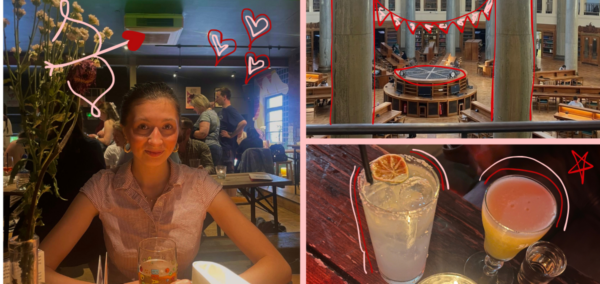
In conversation with Edinburgh’s student hotline: Nightline
I sat down with Nightline to discuss all things mental health
If you’re a student in Edinburgh, you’ve undoubtedly seen stickers and posters advertising information helpline: Nightline. From the hallowed halls of Teviot to lampposts on the meadows, the signature purple and yellow stickers offer promises of a listening ear for any Edinburgh student in need of assistance or just someone to talk to.
I sat down with two volunteers from Nightline to find out more about what goes on on the other side of the phone. The student volunteers, who wish to remain anonymous, are in their first and fourth years and commit several hours a week to talking to strangers over the phone about their problems.

Advertising
Like me, the volunteers initially heard about Nightline through the stickers and posters dotted around campus. Nightline is not exclusive to Edinburgh and has projects in university cities across the country.
The volunteers informed me of the relaxed and voluntary system which places the well being of both volunteers and callers at its centre rather than a need to fulfil certain quotas.
“People really like knowing there’s a peer at the other end of the phone rather than an anonymous stranger who has no clue what they’re going through.”
However, the organisation do have an Inclusion Coordinator to ensure they are a safe and diverse space for the volunteers and callers.
“We want to make sure we have a diverse group of people who can relate to different peoples struggles and issues.”

Protecting mental health
Most Read
When asked what Nightline do in order to ensure the mental health and wellbeing of their team, the volunteers informed me off highly extensive (and secret) training procedures that ensure none of the volunteers are left without support systems put in place.
“We’re not allowed to take on too many shifts in a row and there’s a strict buddy system to make sure no one’s alone on calls”
I was also pleased to hear about the social aspect of the organisation.
“We’re a real community!” they informed me proudly, telling me about the wide range of socials and balls they put on for their volunteers.
“I find the sense of community really helps me with academic stress and isolation.”

Training
The volunteers couldn’t tell me a lot about the training process as most of it was apparently highly confidential but they assured me that their volunteers are thoroughly trained. The application process involves a thorough online application and interview to ensure that only the most dedicated volunteers are chosen to proceed with the application.
I was curious to know whether they have received criticism for being a student run organisation rather than one run by mental health professionals. However, I was told that since they are a listening service, rather than a crisis service this tends to not be an issue.
“We don’t give mental health advice, we mostly just provide a listening ear and guide people to resources like the university mental health service.”
This means that Nightline are also availiable to answer non mental health related questions. I was surprised to learn that many of the calls the organisation receive relate more to general university quieries than personal problems.
“We get calls about anything from what time certain buildings close to graduation dates and we have a huge database with all the information we need so we don’t have to remember much.”
Overall, it was a pleasure to gain insight into the inner workings of a student run call line.
If you want to check Nightline out for yourself, give them a call at: 0131 557 4444



















